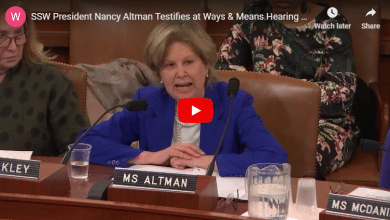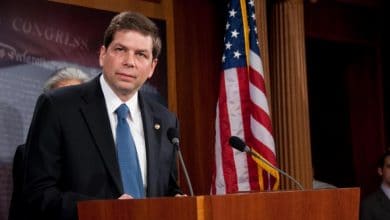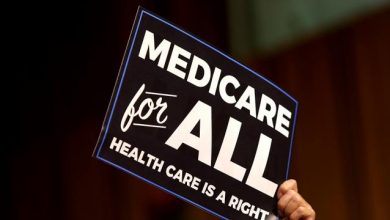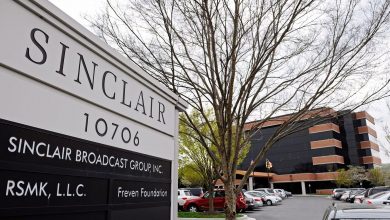Stories
The Battle of 1498
A piece of U.S. patent law could focus deepening public outrage over drug prices—and help cure an epidemic to boot.

[dropcap]T[/dropcap]he Battle of 1498.
What sounds like something on a history class pop quiz is actually the answer to a civics question, one Americans are asking in mounting anger: How do we cut drug prices in the U.S., which are the highest in the world, and provide universal access to lifesaving drugs?
One answer is a statute in U.S. patent law—full name, 28 U.S. Legal Code 1498—that authorizes the government to override drug patents and license the production of cheap generics if it serves the public interest. The statute merely requires that the patent holder be “reasonably compensated,” which the government can define however it wants.
For years, 1498 has popped up, here and there, in progressive legal and political circles. Senator Bernie Sanders has talked about using 1498 to lower prices on new Hepatitis C drugs, as have Sen. Elizabeth Warren of Massachusetts and Rep. Peter Welch, Sanders’ Vermont colleague in Congress.
Now the idea is gaining traction nationwide.
Last year, Louisiana Secretary of Health Rebekah Gee publicly floated 1498 as a solution to her state’s Hepatitis C crisis. Last month, a group of 18 Democratic House members wrote a letter to Health and Human Services Secretary Alex Azar urging the use of 1498 to break the patents on the same drugs.
The revolutionary Hep C treatments to hit the market a few years ago aren’t the only drugs worthy of targeting by 1498, but they are the most urgent and obvious example. The details of this particular drug story are so grotesque, and the number of lives hanging in the balance so large, it provides a model case for using and explaining 1498. Indeed, the six-figure price tags on some Hep C drugs have become the new global symbol of pharmaceutical industry greed.
Hepatitis C is a blood virus that affects 3.5 million Americans and kills more of them than every other virus combined. So when $62 million in government basic research led to the direct-action drug sofosbuvir, which successfully treats the disease, Hep C advocates thought global eradication might be at hand.
Then something awful happened: the patent-and-profit system worked exactly as designed.
In 2011, the California-based drug giant Gilead bought the small bio-med company then in the process of bringing sofosbuvir through trials. When Gilead introduced sofosbuvir to market a few years later, it came with a price tag upwards of $100,000; even with discounts, the drug was priced well beyond the reach of most people. It also strained and busted Medicaid budgets across the country.
Gilead and Janssen, the other company selling patented Hep C treatments, have since made more than $70 billion selling the new Hep C drugs, which happen to be incredibly cheap to produce. How cheap? So cheap, one study estimates they can be produced for between $62 and $216; another study, conducted at Liverpool University, places the cost below $100.
The government has used its authority under 1498 to slash drug prices before. During the Vietnam War, the Pentagon’s Medical Supply Agency used 1498 to procure dozens of generics and name-brand drugs at pennies to dollars. In the wake of 9/11, the Pentagon decided that a “reasonable” reimbursement for a patented antibiotic used to treat anthrax was 2 percent of the sticker price.
Of course, it would be surprising, if not shocking, if Alex Azar, the former Eli Lilly executive currently in charge of HHS, chose to deploy 1498 against the pharmaceutical industry. But the arguments 18 Democratic lawmakers presented to Azar last month resonate with a furious public, and they will only get louder and more familiar in the national debate.
“When we travel and talk to constituents, one of the biggest issues we hear about is access to medicines, or huge out-of-pocket costs, and people are outraged,” said Rep. Ro Khanna, CA-17, one of the letter’s signatories. “We need to rein in the pharmaceutical industry so that they don’t make outrageous profits at the expense of American consumers and the taxpayers who fund the research. I don’t think there’s a single American who thinks it should cost $100,000 to buy a lifesaving drug. Even Donald Trump campaigned on that.”
Khanna said that he thought rounding up 18 co-signers was a good start, and sees their letter as part of a growing groundswell around the issue.
“I’m hopeful it will trigger action from the Senate and we’ll continue to build momentum,” he said. “If we don’t hear back from Azar, we’ll write him again, and consider legislation.”
Khanna continued, “The Hep C drugs present a pretty simple moral issue that highlights the need for reform. When the vast majority of scientific research in this country is being done at universities with NIH funding supported by taxpayer money, we shouldn’t be privatizing the gains. Millions of people need these drugs. We need to prioritize the public good.”
The Louisiana Department of Health continues to see 1498 as a viable option to expand access to Hep C treatment to those who can’t currently access a cure, based on legal analysis and public input. We recently worked with the National Governors Association to bring together states, payers and manufacturers for three roundtable discussions to explore solutions to exorbitant drug pricing in the context of public health crises.
This piece is part of the Drug Prices Are Too High series, sponsored by Social Security Works. If you want to take on Big Pharma and lower drug prices, sign our petition.







